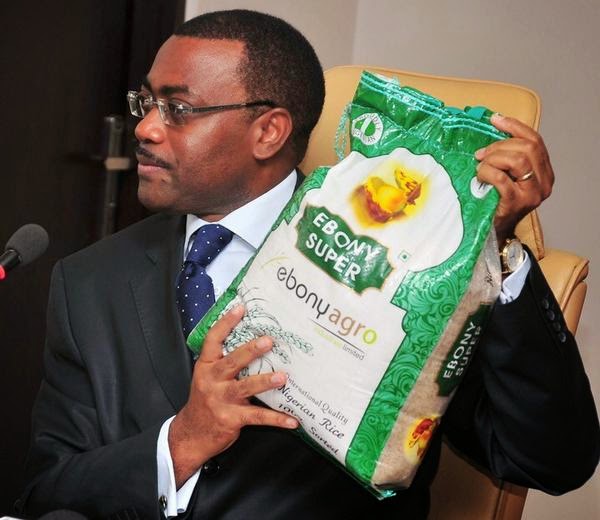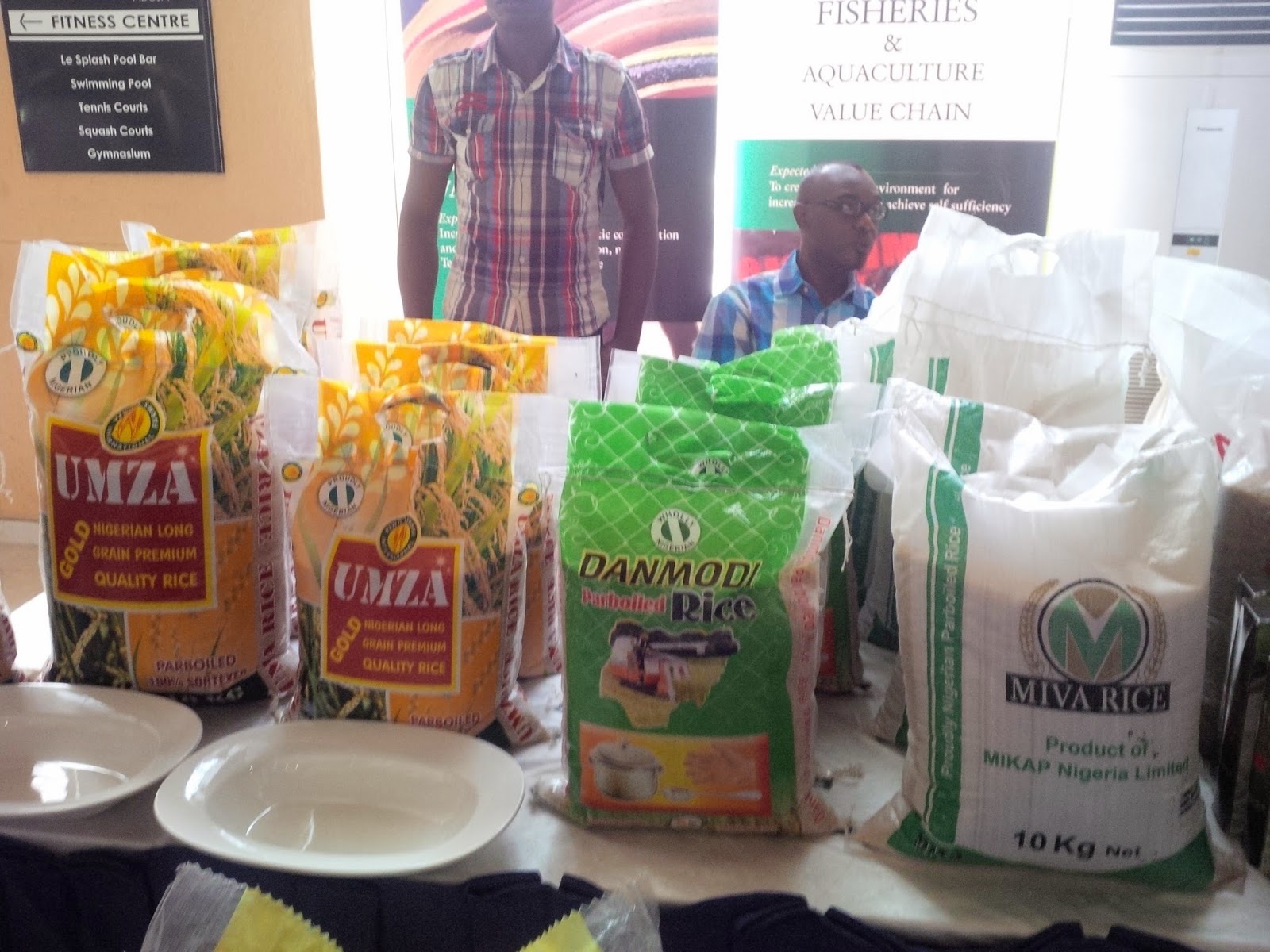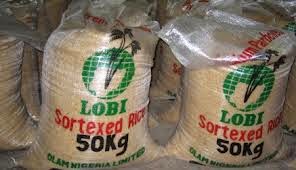 |
| Dr. Akin Adesina with Ebony Rice |
 |
| Rice Farm in Kebbi |
The sustainability of Nigeria
Agriculture is germane to the drive towards food self-sufficiency. Food
insecurity and poverty are two problems globally recognized as the bane of
development and global peace, especially in Africa with greater percentage of
under nourished and the poor.
Nigeria today is confronted with the
challenge with huge import bill of feeding over 172 million people.
Before the
advent of the current administration, the import bill on rice, wheat and sugar
alone was $6.89 billion; good money that should have gone into some other
public projects and infrastructures.
 |
| Umza in Kano, Danmodi in Jigawa and Miva from Benue |
The Agricultural Transformation Agenda of the current
government made some giant strides in developing the local capacities and
markets for major agricultural commodities; through provision of right
environment and whereby agriculture is driven as business rather than
development programmes. The policy of ATA gives support for financial
windows/low interest rates and facilitates partnerships among stakeholders and
government at national and sub national levels.
The Rice industry is one of the
few that actually experienced giant leap in this dispensation and putting Nigeria
on its way to attaining self sufficiency in Rice production. Achievements
to date include:
 |
| Product of Women Group in Niger |
1.
The introduction of the improved
varieties of long grain rice, (farrow 44, 52, 52, L34 and L19) which can
compare with all other international standards.
2..
Increase of 7 million metric tonnes
of rice paddy in 4 years of intervention.
3. The national demand gap has been
closed by 45%, from 2.6m MT IN 2011 to 1.5m MT in 2015.
4. Increase in land area cultivated
from 2.5m ha in 2011 to 3.8m ha in 2014.
5. There are over 20 brands of Nigeria
grown, milled and packaged rice in the market and the no is still growing; in
addition, there are also small, micro village level processors.
6.
About 1.74 million jobs have been
created in the value chain
7.
The new investment in rice
production has shut up to $2.6 billion, (FMARD, 2015).
 |
| Lobi Rice |
We are
not doing enough to actually open windows of opportunities for ourselves with
the great potentials. The government has a lot to do in this regard but much
more rest with us as the governed; because we are still not patriotic enough to
have Nigerian rice on our menu and shopping list in order to encourage more of
local production and attract the level of investment required. The related issue is the fact that we still find it difficult to adjust to ‘change’; including
our taste.
Paradoxically, many times some of us travel out and are left with not
too many alternative choices of food but certain strange ones which we are
forced to eat; we must do the same here for the sake of our dear country. It is
worthy of note to state that, most of the imported rice have sometimes stayed
for far above 10 to 15 years in their country’s strategic reserves. Let us eat
what we produce and produce what we eat; doing this, we keep jobs within our
country, ensure food security, save foreign exchange, earn more foreign
exchange from export in the medium to long term and improve rural economy. In the
last 3 years, I have not taken any other rice except the rich, fresh and nutritious
Nigerian rice of any brand. This is a clarion call we must all hearken to! Join me on the
table!

Where can we buy the rice in bulk please
ReplyDelete